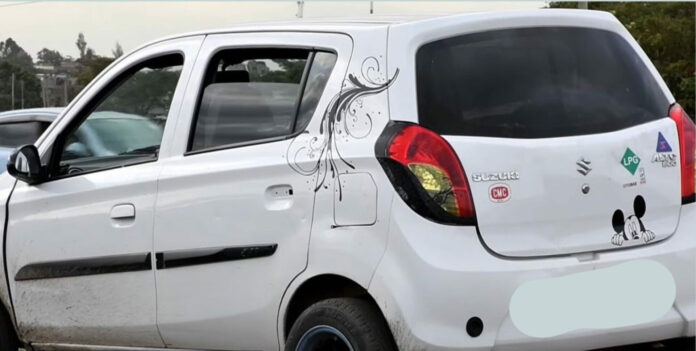Global oil market fluctuations led to a rise in fuel prices, affecting Kenya as well. Despite motorists’ dissatisfaction with the surging global fuel costs, a huge chunk has had to conform to the standards.
However, other motorists have sought innovative alternatives that they can use to bypass these high pump prices. Most decided to convert their vehicles from relatively expensive standard-rating petrol engines to cheaper LPG.
Understandably, these drivers are daily travellers who run errands in their vehicles nearly all day and are looking for ways to minimize costs and maximize profits.
However, these decisions have come with their advantages and also a price to pay. A Kenyan man took to Nairobi to interview 6 drivers who have converted their vehicles from consuming petrol which retails at Sh. 207.36 to Liquefied Petroleum Gas that costs Sh. 124 per litre.
Eric Nyaga is a Toyota Passo 1000cc driver who is in the PSV business. He revealed that he has been using LPG gas for slightly over 1 year now.
His greatest challenge with the LPG configuration is the long hours it can take to wait in a queue just to get their tanks refilled. He mentioned that it can take up to 2 hours to get a tank refill.
This is while their petrol counterparts get back on the road quicker than them, earning more than what they were initially trying to save. He mentioned that servicing the filter, which costs approximately Sh. 1800, is relatively expensive.
Another Toyota Vitz driver has been using the LPG for 3 years to run his Uber errands. He shared that the car’s performance is the same as when using petrol. He gains the upper hand when it comes to saving nearly Sh. 100 on fuelling.
For his vehicle, the driver mentioned he gets just a fuel economy of about 16km/l of LPG while navigating on the roads. This is nearly the same amount as their Petrol counterparts for a Toyota Vitz model.
Asked why many people have not joined in on LPG, the driver explained it was due to fears that there may be some potential engine damage. He also lamented the scarcity of fuelling stations.
Christopher Njoroge, another driver, said that he’d been using LPG gas for 2.5 months. He has not had any difficulties at all with this cheaper fuel type, except for the car’s driving strength on the road.
Judy Wanjiru: Nairobi lady making up to Sh. 200,000 monthly from Uber
An Uber/Bolt part-time driver, Allan Kariuki who operates a Nissan Note 1300 cc shared that he would still install LPG in a new car, given the opportunity. This is because of its countless benefits. He hasn’t experienced difficulties, aside from the filling station issues.
“Actually you can’t notice any difference when using the petroleum and the gas. Performance is the same,” said Kariuki.
Isaac Kariuki is in the PSV & Car hire business with a Suzuki Every which consumes LPG gas. He shared that he’s been using gas for about 1 year, and has not had any challenges. The big bonus he has had is the Sh. 90 savings.
Another Nissan Note driver who is also in the Uber business stated that he’s been using LPG for about 6 months now. He says that the LPG gas has been very efficient in terms of fuel economy and also savings.
“Gas is almost half the price of petrol, so at least I can save some money. Using LPG, per day I can make profits of between Sh. 4,000 and Sh. 5,000. However, using petrol, I would make Sh. 2,000 or Sh. 3,000.”
For him, the car performance has been the same ever since he changed to gas, and there have been no engine knocking or failures in general.
“Everything has been just like using Petrol. There’s no difference,” Peter Otieno added.









